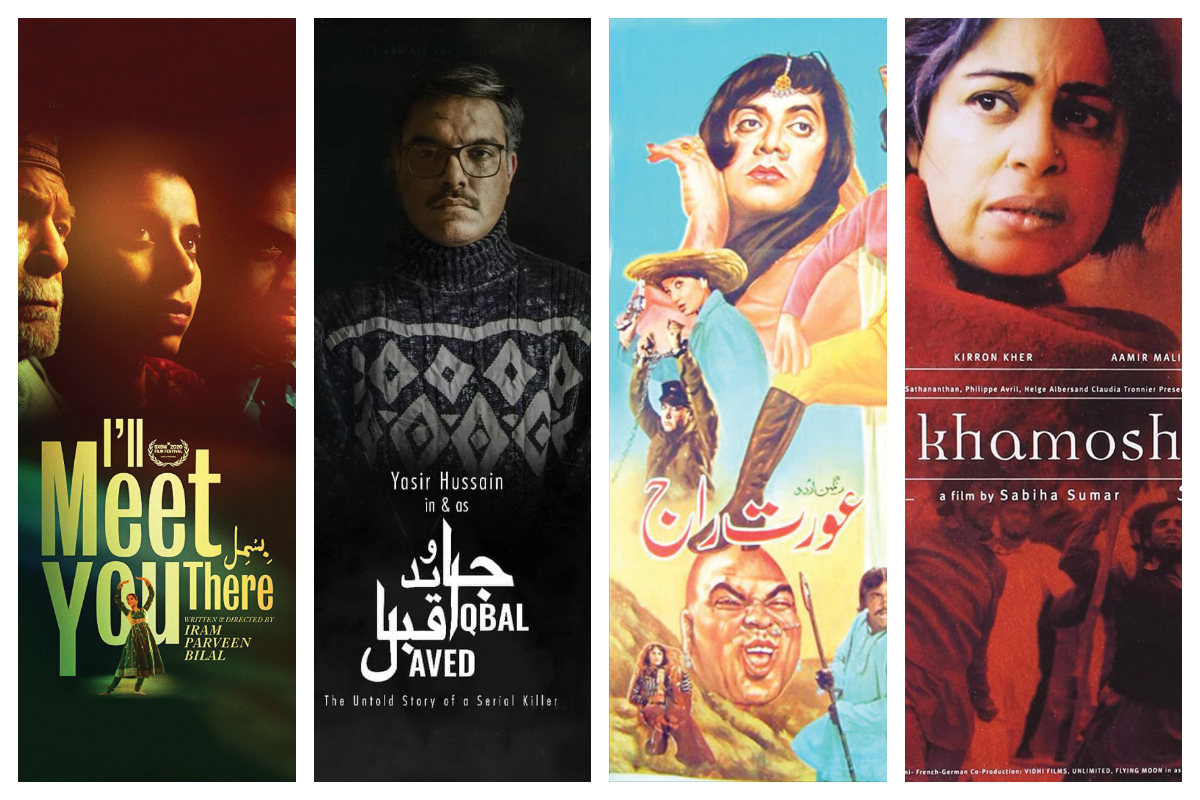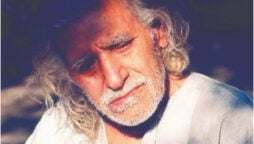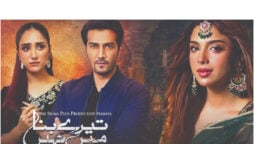
The rollercoaster ride of Pakistani cinema
Bane of banning culture
About a couple of weeks ago, I interviewed Saim Sadiq, the director of the film Joyland, for BOLD. In the interview, I asked him how he thinks the people of Pakistan will welcome his film all set to release with a lot of hype. Saim excitedly answered that he is very optimistic about the film and is expecting a positive response from the film’s viewers in the country as the film has touched milestones. Not only him, but Abu Aleeha, Pakistani filmmaker and director, was equally thrilled for his film Javed Iqbal: The Untold Story of A Serial Killer and so was Sarmad Khoosat for his film Zindagi Tamasha, Shamoon Abbasi for his directorial debut Durj and Shoaib Mansoor for the film Verna. They all were upbeat because they trusted the system’s pseudo-progressive approach. However, a trigger-happy censor board is always good at killing the creativity in the guise of maintaining the morality as well as immediately banning such films created along progressive lines.

Hypocrisy prevails in every state institution, especially the art institutions. Knowing that Joyland is the only film capable of being nominated for the Oscars because of the film’s simple-yet-strong storyline, it had to fight with the censor board of its own country, made an appeal to the Prime Minister to have the slapdash ban lifted, and launched a slew of social media campaigns with a hashtag #Release Joyland, compelling the censor board to reverse its hasty decision. The Joyland episode is not the first instance as the ban culture has been infesting the country’s art scene since ages. There is a litany of films which have banned in Pakistan earlier before and after release, mainly on the basis of immorality, unethical content and disrespect of religious beliefs and customs. Confused and directionless PMLN government is changing their decision every hour. They initially cleared the movie for screening, then banned it, reviewed it again and announced its release after cutting some scenes and finally banned it forever. The situation has now become topsy-turvey.

As mentioned earlier, the international award-winning Joyland is not the first film that became the victim of ban culture as it was almost on the cusp of getting banned forever. In fact, there are many other films such as Javed Iqbal, Zindagi Tamasha, and I Will Meet You There, which were not allowed to be released in Pakistan but still they managed to win international awards. Other flicks recently banned in Pakistan are Verna, which portrayed the ugly side of the powerful elite and Durj, based on the real-life story of a man who evades imprisonment as the law does not have a well-defined punishment for the crimes he has allegedly committed. One wonders what are the actual criteria and the state policy that come into action when it comes to approve or reject any film on rational grounds. How does the censor board decide such critical matters and what are the qualities of an entertaining film in the eyes of the board?

We asked the similar question to the leading names of the Pakistan’s entertainment industry. Let’s find below the perception that rules the industry:

“Why do we even like to talk about it? Pakistan is a struggling country. There are other crucial issues facing the country that merit deliberation. As far as the film Joyland is concerned, I would not like to make a comment about the film until I have fully watched it. Having said that, whenever a TV serial or film defies the moral and ethical values of the society it should be banned straightaway, even if it made under my direction or production.” It was said by a veteran playwright, Khalil-Ur-Rehman Qamar.

Mohsin Ali, a notable scriptwriter, has another approach towards the prevailing ban culture as he plainly denounces the hypocritical moves of the censor board. Commenting on the ban of the movie Joyland he said “Slapping an outright ban on a film is always a ridiculous move.”
“The decision to put a ban on the scheduled release of the film Joyland was quite funny. In Pakistan, there are a total of four censor boards operating in each province. Before deciding about the fate of any film, they all should be on the same page and the last call should be made by the Federal Board. However, the Sindh Board does not have a problem in screening Joyland in cinemas whereas the rest of the three boards are against its screening. What a shame!”
“We always have a choice to watch or not to watch a film. The people who are having problems with the film should not go, but banning the film on the perceived promotion of vulgarity is not a feasible solution. A piece of entertainment should never be banned.”

Meanwhile, I was getting the feedback from the entertainment industry, I keep trying to contact Adil Ahmed, the Secretary of Censor Board, Sindh, who repeatedly told me to drop him a message or call him later. I tried to not make him feel under attack but his actions implied that he did not want to say anything on the issue at all.
On the condition on anonymity, another actor said that he has a small message for the people at the helm of affairs. “Censor board’s set criteria and its policies come later, as it is more essential to know about their own fantasies as well as the high standards and parameters they have in place in order to approve or ban a film. They banned a film like Javed Iqbal: The Untold Story of A Serial Killer, which was based on a true story. However, what were the leading factors which pressurised the censor board to ban the film are still not known. There is always a certain group of people who call the shots and the policies and regulations in place are only on paper for the sake of maintaining discipline and nothing else.”
“As an indie filmmaker, I am glad that the vicious cycle has broken and let it be because of the power of social media, and strong public relations,” says Abu Aleeha, a Pakistan-based filmmaker and director.
He already predicted that the film might get banned again as the government itself seems confused and cannot make a firm decision as they are under pressure. “The release of Joyland in Pakistan has set the precedent. But I am still waiting for the film’s screening in cinemas as you never know that even before its release any religious political force or outfit is able to force the government to ban the film or take it to the law court. Once this barrier is removed then I will also be able to work on the release of the film, Javed Iqbal: The Untold Story of A Serial Killer,” he added.

Shedding more light on his yet-to-be-released film Javed Iqbal, Abu Aleeha said that the film could not get approval from both the Federal board and the full board. “To make things worse, we were not able to file an appeal to the Appellate board as there is no such board even operating after its dissolution some four years ago.”
Shamoon Abbasi, a veteran TV and film actor and director, told BOLD that his film Durj was banned because it featured the non-existence of the law for a specific crime, due to which the culprit gets an easy way-out. However, the film was based on a true story.
A widely-cherished and celebrated film, I’ll Meet You There was also banned by the Federal Censor Board. Abid Aziz Merchant, the Executive Producer of the film, shared how his award-winning film, which crossed many milestones in the country’s film history, was banned in Pakistan.
“A Pakistani film that has such legendary actors as Qavi Khan and Faran Tahir and depicts a story of Pakistani expatriates living in Chicago, is unfortunately banned in Pakistan.” He further read the letter to BOLD and stressed the sentence in the letter which said, ‘We are pleased to refuse to grant of censorship certificate in favour of your film.’
The ban was imposed after the Full Board Review, the team behind the film I’ll Meet You never lodged an appeal in the court of law to have the ban lifted and allow the film’s screening in Pakistan, the reason behind such move, according to Abid, was the fact that at that point in time it seemed useless to ask for the review of the unjust decision as the country was going through a deep-seated political chaos, the then government was being replaced by a new one and so all focus was merely on politics.
The film Chaudhry – The Martyr was released in Pakistan because it was supported by the security apparatus. The film highlighted the dirty politics played around the martyrdom of Chaudhry Aslam. Surprisingly, the film tried to unveil some dark aspects of the country’s politics and how goons develop strong connections with corrupt politicians who use their influence to save the criminals from getting into any trouble. Frankly speaking, Durj can be referred to as any other film of the sort which could not fight the system, suffering heavy financial losses, and eventually getting banned in the country.
What needs to be discouraged in the media is the portrayal of domestic abuse, marital violence, and the glorification of narcissism as such evil practices are largely shown in every next TV show. PEMRA (Pakistan Electronic Media Regulatory Authority) does not mind when the acts of domestic violence are shown in TV serials. However, the concerned authorities suddenly wake up from their deep slumber as soon as something out of the box, extraordinary and different is produced that unmask their double standards and expose the hypocrisy of the system.
In addition to that, some TV channels show old Pakistani films with highly objectionable and vulgar content and should have been immediately banned since they openly promote sexuality and vulgarity. However, no one is bothered as these films feature such things that most men want to watch in a film. In sum, there should be equal rules and policies in place applicable for both TV shows and film productions.
The set of rules and regulations should also be made clear enough to secure the interests and rights of the filmmakers as these are the people who are making every effort to revive the film industry’s lost glory and let it flourish and prosper.
Made in Pakistan but not for Pakistan

Jago Hua Savera (1959)
Jago Hua Savera had a screenplay by Faiz Ahmed Faiz and explored the struggles of fishermen in East Pakistan. It was directed by Lahore-based director A J Kardar and was a joint production between East and West Pakistan. General Ayub Khan halted its release two days before its premiere.

Aurat Raj (1979)
Starring Waheed Murad, Aurat Raj, produced and directed by Rangeela, was banned after it had already been released in cinemas. The film adopted a feminist perspective by swapping gender roles of the actors.

Maula Jatt (1979)
Directed by Younis Malik, the original Maula Jatt was banned after its release due to “excessive sexual content and violence”. After getting a stay order, the film dominated Pakistan’s screens for two-and-a-half years. It starred Sultan Rahi, Mustafa Qureshi and Aasia.

Khamosh Pani (2003)
This Sabiha Sumar film starred Indian actress Kirron Kher, Aamir Ali Malik and Navtej Singh Johar. The film touched upon themes of Islamic radicalisation, the wounds left by partition, and how the country changed under the dictatorial rule of Geneal Zia-ul-Haq. Khamosh Pani (Silent Waters) was banned even before it was reviewed due to the casting of Indian actors in the film.

Slackistan (2010)
Hammad Khan’s independent directorial venture told the story of three young men belonging to the upper class of Pakistani society trying to navigate through their lives in Islamabad. As a result of the unabashed use of profane language in the film, Slackistan was banned.

Maalik (2016)
A week before Maalik was scheduled to hit theatres, it was banned by the Sindh censor board and the Sindh government. It was directed by Ashir Azeem and starred Farhan Ally Agha, Adnan Shah Tipu, Hassan Niazi and Sajid Hasan. The ban was lifted by the Lahore High Court in September 2016, allowing Maalik to be shown on limited screens.

Verna (2017)
The third film by Shoaib Mansoor, this Mahira Khan led movie was banned because it addressed the issue of rape. However, Verna was released in November 2017 following public backlash. The film also stars Haroon Shahid, Rasheed Naz, Naimal Khawar and Zarrar Khan.

Zindagi Tamasha (2019)
Directed by Sarmad Khoosat, Zindagi Tamasha’s release was halted after the Tehreek-i-Labbaik Pakistan (TLP) said they would stage protests against the film. Despite receiving widespread international acclaim, the film has still not been released in Pakistan.

Javed Iqbal: The Untold Story Of A Serial Killer (2022)
Directed by Abu Aleeha, Javed Iqbal: The Untold Story of a Serial Killer explores the investigation into the killings carried out by the infamous titular character. The Punjab government banned the film which stars Yasir Hussain and Ayesha Omar. Whether or not the film will get a theatrical release in Pakistan still remains uncertain.

I’ll Meet You There (2022)
Iram Parveen Bilal’s film I’ll Meet You There was banned on the grounds that it “does not reflect true Pakistani culture, portrays a negative image of Muslims” and is against the “social and cultural values of Pakistan.”
Catch all the Bold News, Breaking News Event and Latest News Updates on The BOL News
Download The BOL News App to get the Daily News Update & Live News.












 Read the complete story text.
Read the complete story text. Listen to audio of the story.
Listen to audio of the story.